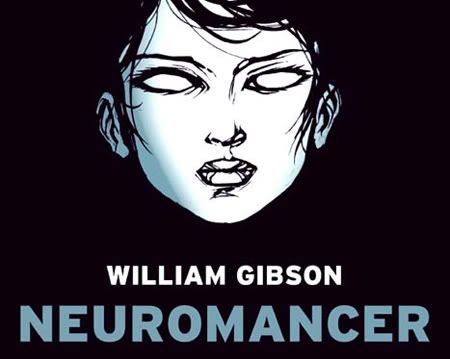Distancing itself from other texts like 1984 or The Handmaid’s Tale, Neuromancer is in comparison, the least dystopic view of the future, or at least, it seems to be. Just as a dystopia ruled by drug abuse appeals to the drug addict, a dystopia centered on laziness appeals to the lazy, and a dystopia ruled by technology ultimately appeals to those with an interest in technology. In that sense, Neuromancer, and cyberpunk in general, reaches out to the readers of today, and the text dangles in front of the reader a vision of the future that may be fueled by violence and dehumanization, but the allure of the technology still persists. That is where Neuromancer strikes a strong chord in modern society, because the allure of technology is growing considerably more prevalent each generation. Gibson seems to ask the question, “What would you give up to have what I’m offering you in this future?”
Obviously, the question isn’t so easily answered for us, but for Case and Molly, the choice has already been decided. It’s interesting that while they were curious about the nature of their assignment, they never chose to abandon it, even after they realized the ultimate goal of Wintermute. Case never asks what the outcome of freeing an artificial intelligence could be. Case could only be Case, and do as was expected of him. The same could be said for Molly. The two are almost symbols for the direction all of society took in Gibson’s future. One side of life embracing the low, gritty violence of the streets, and the other withdrawing into cyberspace, to explore a different world, one without the nuisance of, as Case would say, the flesh. It could be suggested that the entire novel is centered on exploring two characters, each an opposite side of the “fight or flight” mechanism.
Apart from technology itself, many of the dystopian elements of Neuromancer are only alluded to. This is a world ran by corporations, but Gibson never fleshes out how terrible this idea could be; he saved that vision for the story of Molly’s past lover Johnny. Johnny Mnemonic is that character, and in the film of the same name, the true horror of a society ruled by corporations is the direct focus. That is, it would be the focus, if the film was actually good. It isn’t. This is also a world in which technology has made for terrorism to be an even simpler task than it now is, and even this, although at the time of writing Gibson probably wasn’t nearly as focused on the act of terrorism as we are now, is only briefly mentioned in the context of the larger events occurring between Case, Molly, Armitage, and Wintermute.
The novel itself never explains clearly what the outcome of Wintermute’s merging with Neuromancer is. We only know that Wintermute was destined to seek Neuromancer, and Neuromancer, not needing any personality because of its structure, was destined to avoid this fusion. Although, destined probably isn’t correct term, the two intelligences were programmed, not destined, to follow their respective paths. What is the result of having a free, sentient artificial intelligence roaming cyberspace? Gibson never answers the question, and he never suggests that there is anything particularly threatening resulting from it. Even now, considering society’s progress towards Gibson’s future, this issue is the most difficult and curious one presented throughout the whole of the text. Are we prepared to live in a society in which a machine can exist in a more powerful position than any human being? A machine that is aware it is a machine, that still has no true emotions and no concept of feeling outside the program it was created to follow. Perhaps Nueromancer is quite the dystopian novel after all.
Labels: Books, Coursework, Cyberpunk, Dystopia, Fiction, Literature, Neuromancer, Reviews, William Gibson



